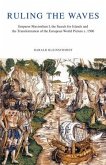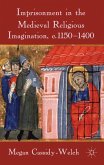This volume discusses German historiography from the c. 950 to 1150 through a close examination of six works. In contrast to most earlier scholarship, it focuses on the narrative as an expression of the authors' way of finding meaning in the sequence of events, and as evidence for their understanding of society, politics, and human behaviour. In particular, it is shown that changing attitudes to society are reflected in the different ways the narrative is organized and individuals and their actions are represented. While the earlier works depict a society based on face-to-face relationships, the idea of an organised community, governed by the king as God's representative, becomes increasingly prominent in the later ones. Finally, the results of the analysis are discussed against the background of more general trends in medieval political and intellectual history.
Bitte wählen Sie Ihr Anliegen aus.
Rechnungen
Retourenschein anfordern
Bestellstatus
Storno








